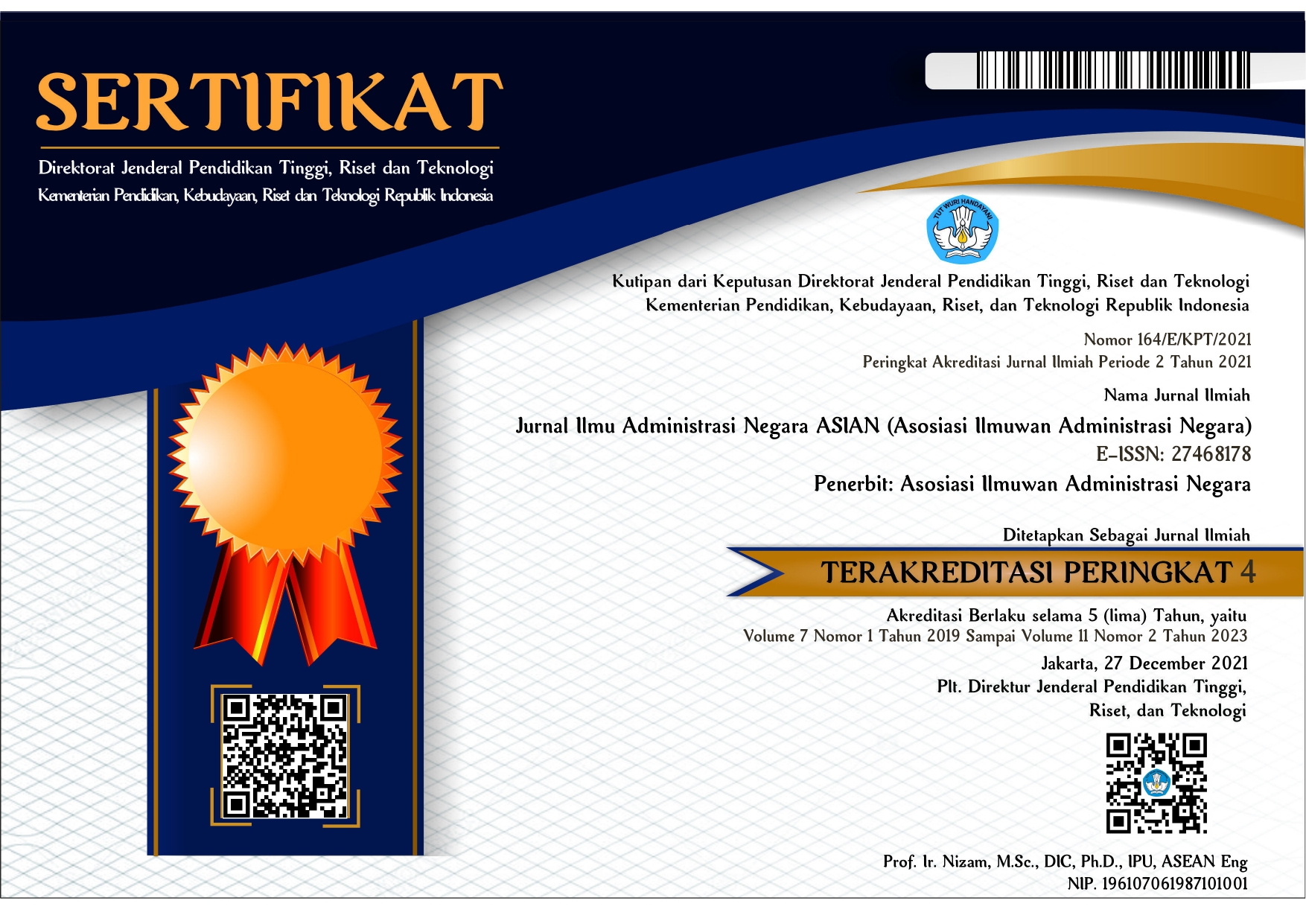Kebijakan Transportasi Online dan Konflik Sosial
 Abstract views: 1877
,
Abstract views: 1877
,
 PDF downloads: 3650
PDF downloads: 3650
Abstract
This research aims at doing analysis and evaluation forward the governments Policy Concerning “ Online Transportation”. The Policy Nomenclature is in the regulation of transportation ministry No. 26 in 2017 on the implementation of public transportation which is not operating on a certain route online transportation operation has become phenomenal because of causing a social conflict. This has been going on for 2 years and it has not been settled up to now. Public transportation in the field of public administration is called public goods. The Availability and Implementation become the government's obligation. This research aims to do an evaluation on the government policy which has caused a social conflict. The Method of research used is a qualitative-descriptive research. The population in this research is transportation operators such as online taxi drivers, conventional taxi driver, vehicle owners and online taxi users. The sample taking technic done is based on random sampling, to completed the analysis forward the online transportation policy was done an in-depth interview and as “ key informants”, namely” Policymakers” -Online transportation operators. The research of the research thas found that the formulation process of the policy has not been done comprehensively and integrally. There are different perception and definition of the government’s intention and public transportation and definition between the government’s intention and public policy found that the support of an organization, human implementation of the budget suggests that the government improve the formulation and implementation through the strengthening of the support of the reliable and organization and management so that social conflicts won’t take place.
Downloads
Authors who publish with this journal agree to the following terms:
1. Copyright on any article is retained by the author(s).
2. The author grants the journal, right of first publication with the work simultaneously licensed under a Creative Commons Attribution License that allows others to share the work with an acknowledgment of the work’s authorship and initial publication in this journal.
3. Authors are able to enter into separate, additional contractual arrangements for the non-exclusive distribution of the journal’s published version of the work (e.g., post it to an institutional repository or publish it in a book), with an acknowledgment of its initial publication in this journal.
4. Authors are permitted and encouraged to post their work online (e.g., in institutional repositories or on their website) prior to and during the submission process, as it can lead to productive exchanges, as well as earlier and greater citation of published work.
5. The article and any associated published material is distributed under the Creative Commons Attribution-ShareAlike 4.0 International License









